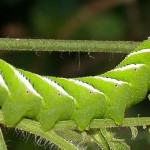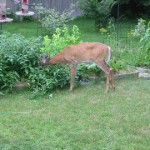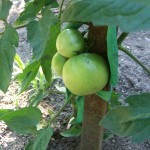After you plant your garden, you are excited about the upcoming harvest. Then you realize that you have a long wait ahead of you. It would be nice if you could harvest vegetables out of your garden quickly, but the reality is that it will be months before you can harvest almost anything out of your garden!
Some people may get bored or discouraged when they realize how long it will be until they can begin getting fresh vegetables from your garden. However, before you get bored and disinterested, there are still plenty of things you can do in your garden to help your plants grow and improve your harvest.
Weeding, watering, pruning, staking, and thinning are some of the things you can do. You can’t normally just plant a
garden and do nothing to it until harvest time…if you do, there usually isn’t much of a harvest. Animals, insects, drought, and weeds can really take their toll on plants if left unattended.
Weeds can choke out plants, insects and animals can completely devour them. Tomato Hornworms, Cabbage Worms, Deer and Rabbits are just a few of the pests that can affect your garden.
There are deer repellent products sold at many stores, you be the judge of whether they work or not. For deer, you may have to build a high fence around your garden. Rabbits also may force you to cage things in…much small scale compared to deer fencing.
Insects such as tomato hornworms and cabbage worms can be taken care of by using a mild insecticide such as Sevin. Tomato hornworms can also be taken care of by birds if you have some Cardinals living in your backyard.
You will also need to cultivate and weed your garden as it grows. It’s amazing how quickly weeds can take over, I think they double in size and number overnight! If you lay out your garden with wide enough rows, you should be able to use a tiller most of the time to clear the walkways, but you will still need to clean up between the plants and around their stems. The less weeds you have the less insects and disease there should be on your vegetable plants.
Watering is critical to your gardens production. While the plants are still small, they won’t require much water and it is possible to over-water them. Over-watering can result in your plants rotting off and dying. As the plants get bigger, they will take more water and you must make sure that they get enough. Every time a plants wilts because it doesn’t have enough water, the flower buds and blooms may die in an effort to keep the plant alive. If your plants don’t bloom, they won’t produce vegetables. (Excluding leafy vegetables of course.)


